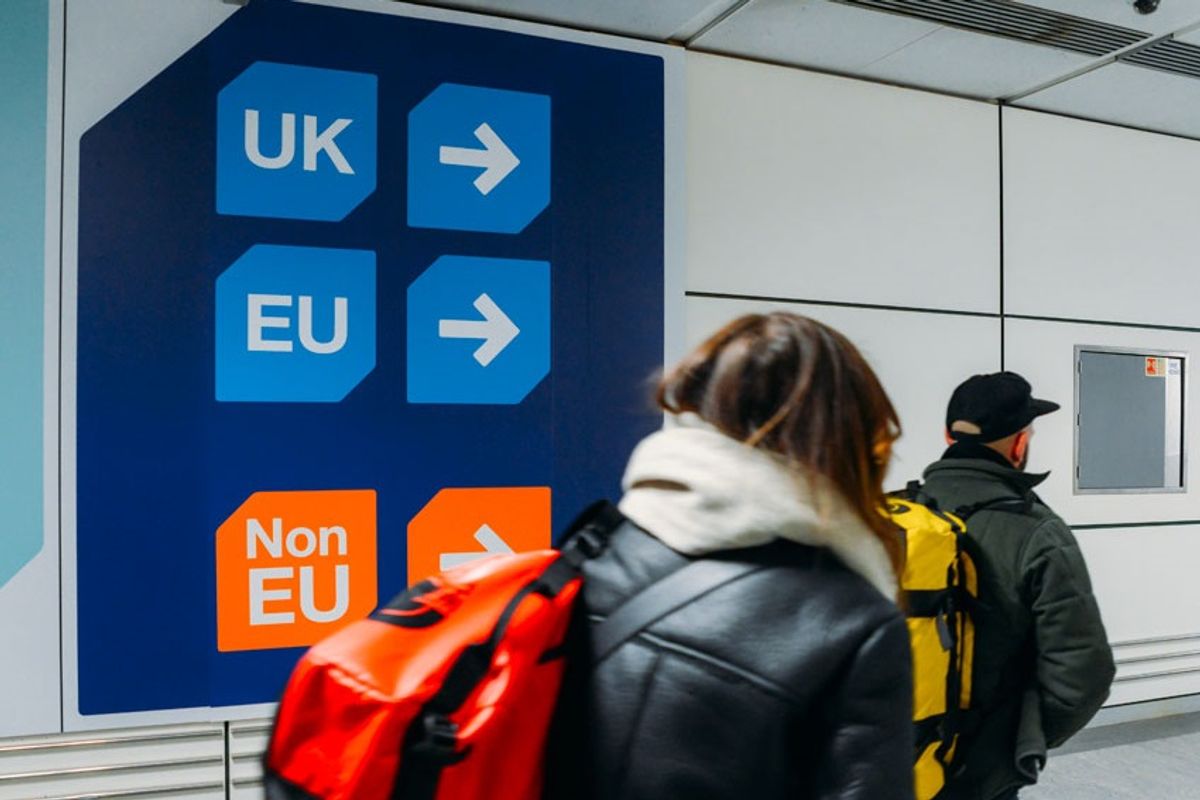UK passport holders could soon be able to use e-gates in Europe as part of a new deal between the British government and the EU.
The UK and EU have agreed a package of measures, which British prime minister Keir Starmer said would “support British businesses, back British jobs and put more money in people’s pockets”.
This includes UK travellers being able to “use more e-gates in Europe, ending the dreaded queues at border control”. Although individual EU countries will ultimately decide what access to grant UK passport holders, and it is unlikely to be implemented until the EU’s Entry-Exit System (EES) is finally launched later this year.
UK travellers have not been able to use EU passport lanes since the country left the bloc five years ago – leading to longer queues to pass through immigration checkpoints. Starmer added that gaining access to e-gates would be the “first discernible difference” for many people.
Nick Thomas-Symonds, UK minister for EU relations, said the deal represented a “new chapter in our relationship with the EU”.
“Since the start of these negotiations, we have worked for a deal to make the British people safer, more secure and more prosperous,” added Thomas-Symonds. “Our new UK-EU Strategic Partnership achieves all three objectives. It delivers on jobs, bills and borders.”
The move to give UK travellers increased access to e-gates when travelling to EU countries has been welcomed by travel associations.
Julia Lo Bue-Said, CEO of Advantage Travel Partnership, said: “Today’s news marks a major improvement for UK travellers. The tedious wait in border control lines since Brexit has long been a source of irritation for many Brits travelling to the EU, widening the availability of e-gates across Europe will indeed be most welcome.”
Meanwhile Clive Wratten, CEO of the Business Travel Association (BTA), called it a “positive step”, which should reduce “lost time” for business travellers.
“Time is money and the cost of waiting in long queues is significant for UK businesses,” added Wratten. “The concern will be if EU countries will follow suit, as it will be up to individual countries how and when to grant the access.”
Mark Tanzer, CEO of UK-based ABTA, said the change should make it “easier for travellers” by cutting down on queues and pre-trip admin.
“There are of course more border changes coming down the line – including the EU Entry-Exit System (EES) planned for October 2025,” noted Tanzer. “It is vital we continue to see good co-operation between the UK and EU on the introduction of this scheme to make it as streamlined as possible for UK travellers.”
The European Commission and the UK “will continue their exchanges on smooth border management for the benefit of their citizens, including the potential use of e-gates where appropriate”, according to an EU statement.
“They note that European Union citizens can use e-gates in the United Kingdom and that there will be no legal barriers to e-gate use for British nationals travelling to and from European Union member states after the introduction of the European Union Entry-Exit System,” added the statement.


